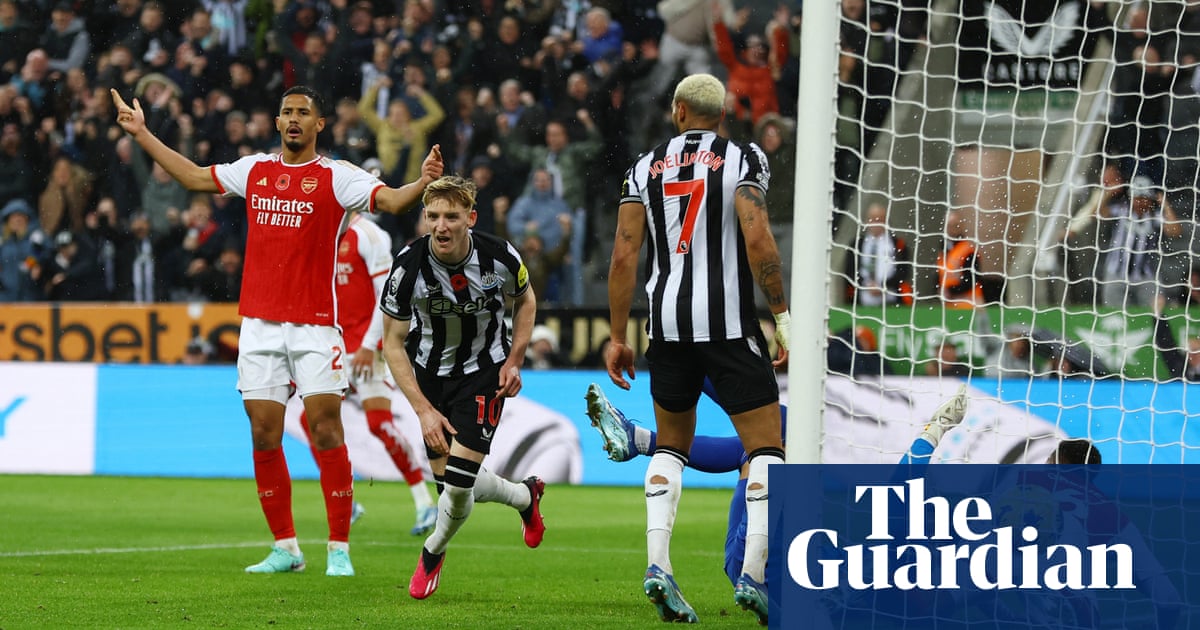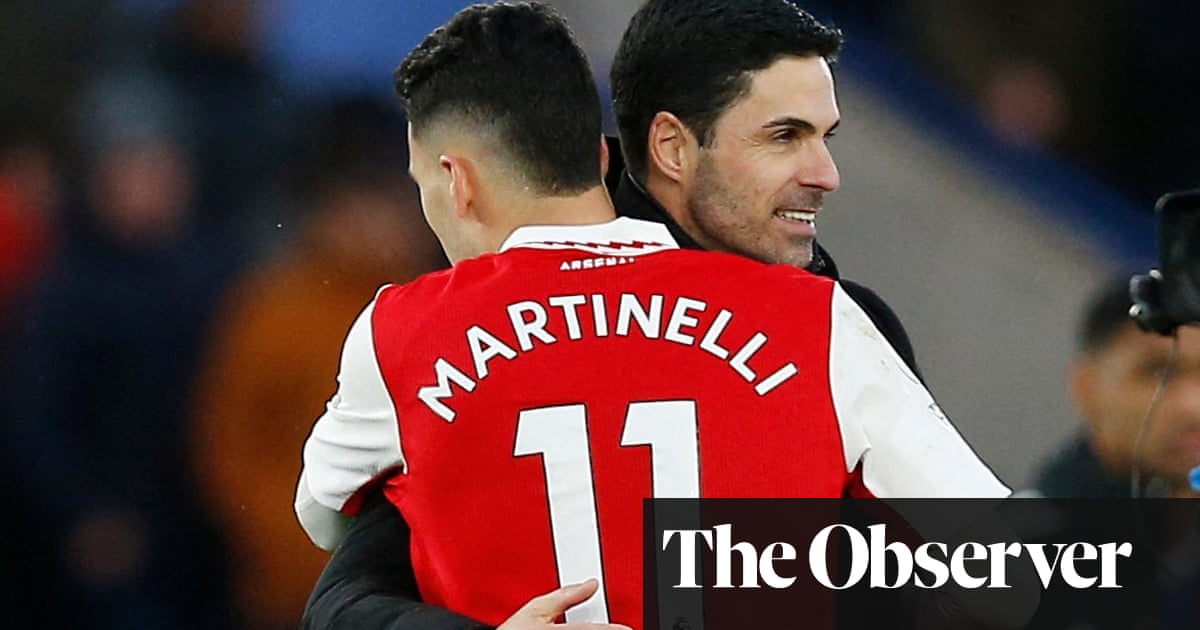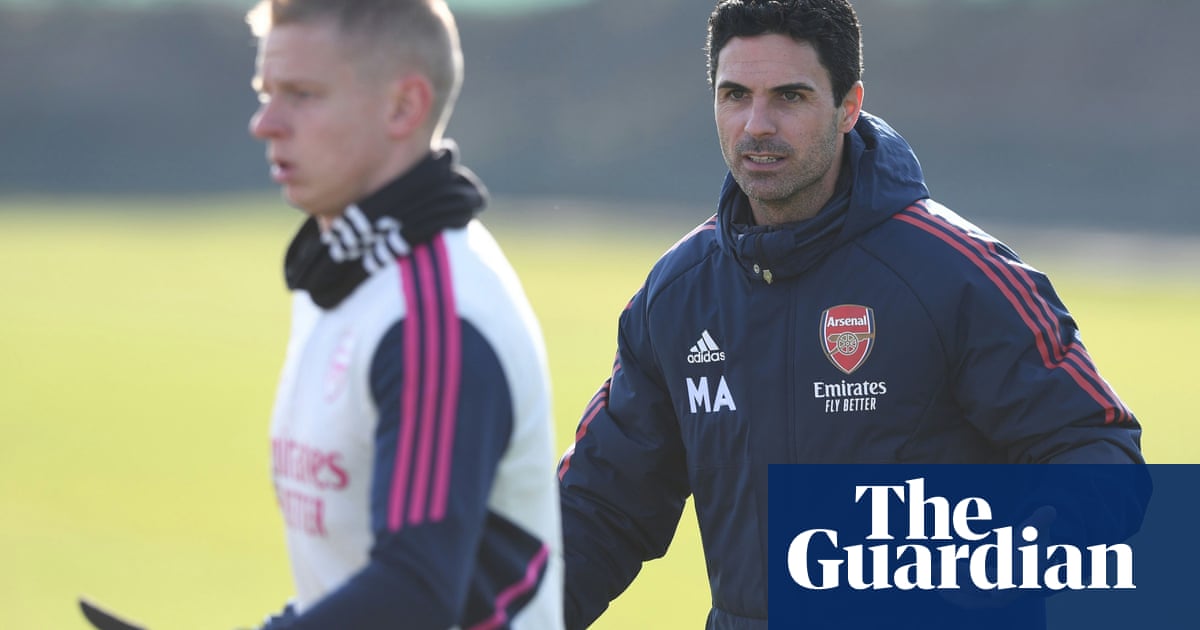
The joke around Arsenal’s training ground as his playing days wound down was that Mikel Arteta, more than anyone else in the squad, had everything mapped out to a tee. Arteta would take his fair share of ribbing for being the studious type, the grounding influence, the de facto manager on the grass, and there were days when he did not have to walk too far around the practice pitches before being accosted by semi-mocking cries of: “Coach!”
In straighter-faced situations, perhaps in front of the media, teammates would simply say his defining trait was he “thinks about the game”; both settings were founded in respect and now Arteta is poised to find out if he can wield the same influence in a role for which he has spent years preparing.
It is an inescapable fact that Arsenal have gambled in asking their former captain to revive their fortunes but those who have worked with Arteta suggest that, where managerial novices are concerned, he is as sure a thing as it gets. There is a reason his cause has been championed by Arsène Wenger, Pep Guardiola and Mauricio Pochettino: all of them know a coach when they see one and it is rare, at Arteta’s stage of career development, to encounter someone who has held a clear vision of his own management style for so long.
Back in 2014, during an interview widely circulated in recent days, Arteta spelled out how he could manage a notional “Mikel Arteta FC”. He was two years from retirement, and yet to actively assist Wenger in training sessions as he did in his final campaign, but none of the policy he outlined had been thought up on the hoof. Instead it sounded more like a deliberately constructed manifesto, its words perhaps intended to peal loudly in earshot of future employers. Wenger-esque ideas about expressive football poured forth, as did more pragmatic views about ways of adapting to the players one is dealt. Most striking was the self-assurance with which they were offered.
“I’m certainly going to stay involved in football because I think I’ve got something to add. I would like to prove myself, and prove my ideas about managing and encouraging people to do things in the way I believe is best,” he said. “I’m 100% convinced of these things, and think I could do it.”
He will need that confidence when he enters the Arsenal dressing room of 2019. Among the senior first-teamers only Héctor Bellerín, Mesut Özil and Calum Chambers were around in his final season and elements within the squad were perfectly happy to undermine his predecessor, Unai Emery. There will be some doubts about his rawness and it would not take a huge leap to conclude that the Instagram post by Pierre-Emerick Aubameyang’s brother Willy, which stated Arteta and Freddie Ljungberg are “the same, no experience”, reflects fears that exist in certain quarters within.
So Arteta may have to be ruthless but, in that mission statement, he suggested that is part of his nature. “I will have everyone 120% committed, that’s the first thing,” he said. “If not, you don’t play for me.”
There is something about the better managers that cannot easily be pinned down; an intangible sense of self-possession and gravitas, perhaps best manifested in the ease with which they flick between “relaxed” mode and a state that demands business only. Arteta emitted that as a player and it will come in handy given that, for many footballers with big ambitions in management, one of the most common achilles heels is an inability to shed whatever blemishes they portrayed in their previous career.
Those three years as Guardiola’s No. 2 at Manchester City put that to the test. A common charge is that, as a 37-year-old who has never led a team, Arteta risks being a “yes man”. That should not be a concern. Insiders at City were deeply impressed by the way he set about his job during a tough first season for Guardiola.
It was clear immediately that Arteta, who took the position six weeks after his playing swansong, was a viable sounding board rather than simply an implementer of Guardiola’s plans. He had confidence in his ideas and was not afraid to put them forward, quickly winning over some of the harder-to-please individuals with his ability to convey thoughts. It is not a given that top players will grant their undivided attention instantly but that is the effect Arteta had and Leroy Sané is among those who have publicly shown appreciation for his teachings.
Now Arteta returns to a club he came to love and where, despite enjoying only moderate success, he was deeply admired. There were elements of dissent here and there: a school of thought existed that his perceived golden-boy status among the staff was a little bit much and there were some suggestions that rather a lot was made of his farewell appearance. But those were only minor grumbles about a figure who, while clean-cut, never invited doubt about the substance that lay beneath.
When Arteta’s transfer to Arsenal was completed, in the final minutes of the window on August 21, 2011, there was a sense he had found them at their lowest ebb. They had been humiliated 8-2 at Manchester United four days previously and, along with Per Mertesacker and the less successful André Santos and Yossi Benayoun, he was viewed as a slightly underwhelming piece of the experienced cavalry enlisted to patch things up again. That had nothing on the situation he looks certain to inherit but, if the club’s players are once again hailing him at their London Colney base five years hence, it will suggest an unthinkably large swathe of his grand plan has come to pass.The Guardian Sport












